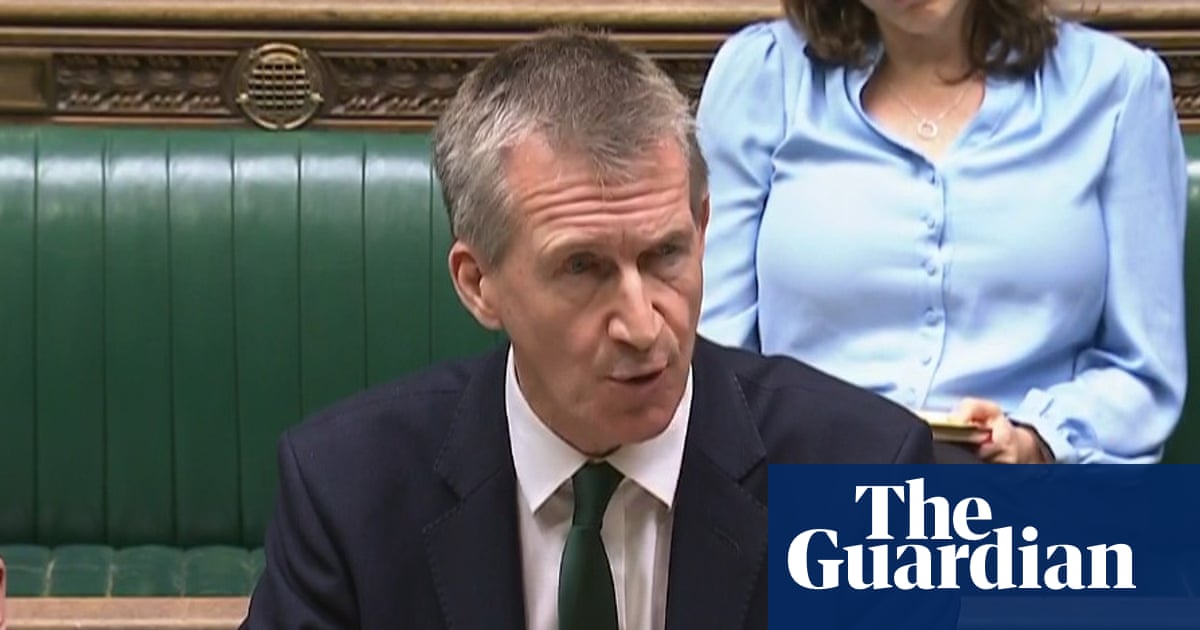
The government made “every effort” to support the trial of two men accused of spying for China, a minister has said as he accused the Tories of claiming the case was deliberately abandoned “without a shred of evidence”.
Dan Jarvis, the security minister, issued a robust defence of Jonathan Powell in the Commons after reports that Keir Starmer’s national security adviser played a role in the collapse of the case.
His intervention prolongs an extraordinary blame game between ministers and prosecutors over the abandonment of charges against two men, including a former parliamentary researcher, who were accused of spying for Beijing.
Charges were dropped against Christopher Cash and Christopher Berry, who had always maintained their innocence, last month after the Crown Prosecution Service (CPS) said it could no longer meet the evidential threshold needed to proceed.
Jarvis said that since the charges against Cash and Berry were brought in April 2024, the deputy national security adviser, Matthew Collins, provided three witness statements to support the trial in December 2023, February 2025 and July 2025.
“All of the evidence provided by the deputy NSA was based on the law at the time of the offence and the policy position of the Conservatives at the time of the offence,” he told MPs. “Every effort was made to provide evidence in support of this case within these constraints.”
But he said the CPS decided to pull the charges because it was “hamstrung by antiquated legislation that had not been updated by the Conservative government despite the evolving nature of the state threats that we face”.
Jarvis told the Commons that “suggestions that the government concealed evidence, withdrew witnesses or restricted the ability of witnesses to draw on particular bits of evidence are all untrue”.
Kemi Badenoch, the Conservative leader, said the government’s explanation “will not wash” and that it “looks like a deliberate decision to collapse the case and curry favour with the regime in China”.
She argued that the Conservatives repeatedly described China as a threat when they were in government and suggested Powell had a hand in the developments because he “has a very close relationship with China”.
Jarvis said that Powell “was not involved in any decisions about the substance of the evidence” and “made no decisions about the contents of any evidence”, and denied reports that Powell told a meeting of senior officials in September that the government would not be able to describe China as a threat in its evidence.
“We fully recognise that China poses a series of threats to UK national security, yet we must also be alive to the fact that China does present us with opportunities,” Jarvis said. “If we were to follow the approach of the party opposite – to ignore China and to refuse to engage with China – that is what would undermine our national security.”
Stephen Parkinson, the director of public prosecutions and head of the CPS, wrote to MPs last week saying that “efforts were made over many months” to obtain a witness statement from the government stating that China posed a “threat to the national security of the UK”. He said that without it the case “could not succeed”.
There have been accusations that the government deliberately declined to provide this evidence for fear of damaging trade relations with China, and claims that Powell was behind the decision.
Downing Street insisted on Monday it was “entirely false” to suggest that the government was responsible for the collapse of the trial. The prime minister’s spokesperson said the “decision to drop the case was entirely a matter for the CPS” and that there had been “no role for any member of this government, no minister or special adviser” in making it.
Ministers appeared to harden their line towards China on Monday, with Jarvis, the Foreign Office minister, Hamish Falconer, and the Cabinet Office minister, Ruth Anderson all saying the country posed a series of national security threats to the UK including through cyber-attacks and the transnational repression of Hongkongers.
The Conservatives wrote to Parkinson on Monday night to ask whether the prosecution could be re-started if ministers now provided the evidence requested.
Lindsay Hoyle, the Commons speaker, told MPs he was “angry and disappointed” that parliament wasn’t receiving robust enough protection against foreign espionage.
New MI5 guidance has been published warning politicians in the UK that they are “a target of long-term strategic foreign interference and espionage from elements of the Russian, Chinese and Iranian states”.
The intelligence service warned that foreign agents operated by posing as diplomats, journalists, academics and lobbyists and employed techniques including blackmail and financial donations.